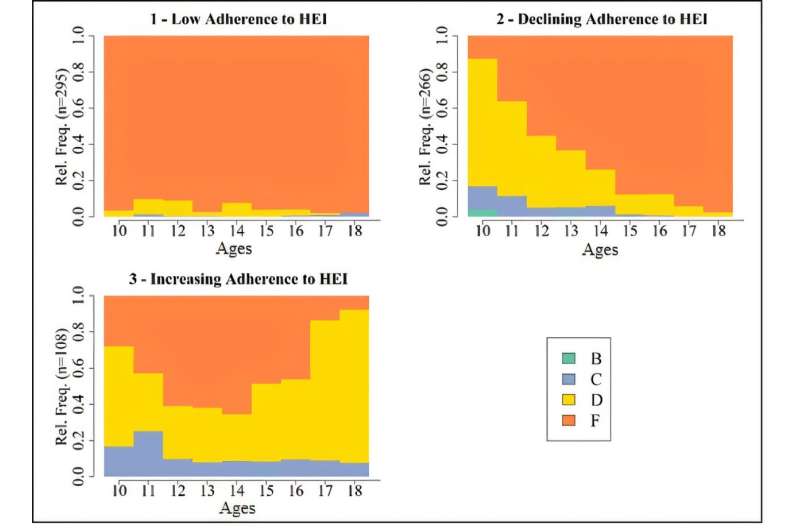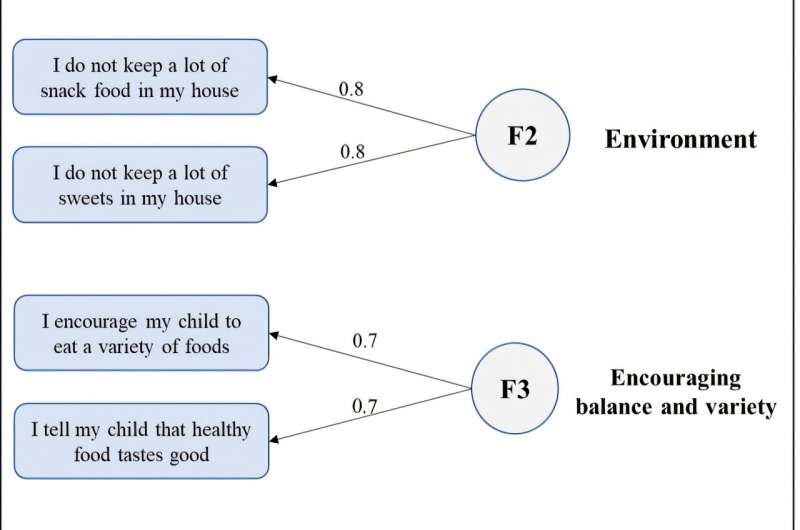While moms have traditionally gotten much of the focus when it comes to children’s eating habits, a new study highlights the importance of dads in shaping a child’s relationship with food.
According to the study, young children were more likely to consume the recommended amount of fruits and vegetables if their father ate a healthier diet during his teen years.
The study is based on data from 669 men who answered questionnaires about their eating habits during adolescence and then, years later, provided information about their attitudes and behaviors surrounding their children’s diet.
“Our study found that fathers who ate healthier as teenagers were more likely to encourage positive food habits in their children,” said Mariane H. De Oliveira, Ph.D., a postdoctoral researcher at Boston College. “These fathers were better at modeling healthy eating—actively demonstrating good dietary habits—and monitoring their child’s intake of unhealthy foods, such as certain sweets and snack foods.”
De Oliveira will present the findings at NUTRITION 2025, the flagship annual meeting of the American Society for Nutrition held May 31–June 3 in Orlando, Florida.
The study participants were part of a cohort called “Fathers & Family, a sub-study of the Growing Up Today Study,” which enrolled children of nurses in the 1990s and 2000s. All participants had completed at least two dietary questionnaires during adolescence and had children between the ages of 1–6 in 2021–2022 when they agreed to participate in a follow-up study specifically for fathers.

During adolescence, about 44% of the participants were categorized as having poor diet quality, 40% had declining diet quality and 16% had improving diet quality. In the follow-up study, researchers collected data on participants’ sociodemographic factors, their child’s diet, their own diet, and their approach to monitoring and managing their children’s access to unhealthy foods.
According to the results, men whose diet quality had improved during adolescence were 90% more likely to model healthy eating when they became fathers and 60% more likely to monitor healthy eating in their children, compared with fathers who had a poor diet in adolescence.
In addition, the children of fathers whose diet quality had improved during adolescence were significantly more likely to meet dietary recommendations for fruit and vegetable consumption compared with children whose fathers had poor or declining diet quality in adolescence.
Researchers say the findings underscore the importance of encouraging healthy eating in all demographic groups, including young people who may one day become parents.
“Healthy eating habits formed during adolescence not only benefit individuals but also shape future parenting behaviors, contributing to better nutrition for the next generation,” said De Oliveira.
“This is especially significant given the growing concerns around childhood obesity and poor dietary habits. Investing in adolescent nutrition, including for boys, can have lasting, intergenerational benefits.”

Researchers noted that the study population was disproportionately white and well-educated, with over 90% identifying as white and over 80% having at least a bachelor’s degree, which may limit the applicability of the findings in other demographic groups.
In addition, the study evaluated the role of eating regular family meals during adolescence and found that it did not contribute to healthier dietary patterns later in life. However, the study did not account for the potential role of mothers’ eating behaviors.
More information:
Abstract and presentation details.
Citation:
Quality of kids’ diets linked with dad’s eating habits as a teen (2025, May 31)
retrieved 31 May 2025
from https://medicalxpress.com/news/2025-05-quality-kids-diets-linked-dad.html
This document is subject to copyright. Apart from any fair dealing for the purpose of private study or research, no
part may be reproduced without the written permission. The content is provided for information purposes only.

